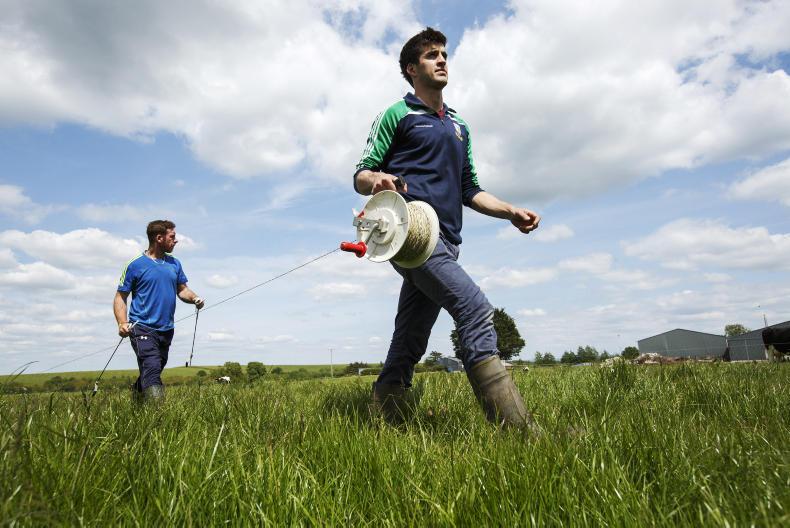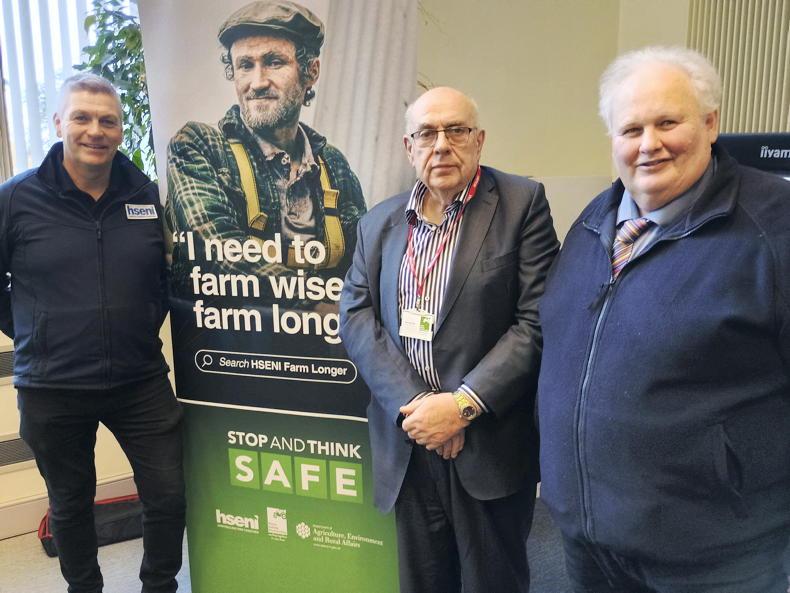The changes to the Green Cert, which were announced at the Teagasc Education Vision Conference in Kilkenny on Tuesday, include more of an emphasis on environmental sustainability, farm safety and extended work experience.
Students must now do more to obtain a Green Cert, with the new a minimum requirement of 170 credits up from the 160 needed to pass previously.
These changes come on the back of recommendations made by an education steering group. The group, which was made up of 150 people and 11 working groups including Teagasc stakeholders, educational and industry representatives as well as international representatives from Norway and Denmark received a total of 109 submissions.
This is the first major overhaul of the green cert in 30 years.
Changes
All students must now complete a two-year programme with the qualification being an advanced certificate in agriculture.
This is divided into various sectors. If students complete a level 5 course, they must return and complete a level 6 to obtain the Green Cert.
The Specific Purpose in Farm Administration (the old green cert) has been discontinued. It has been replaced by the Specific Purpose in Farming course.
In terms of curriculum, significant changes across the programme will come into effect in September including:
Revised grass production courses.A greater focus on farm safety. An introduction to all the major farm enterprises, including beef, dairy, sheep, tillage, forestry, organic, poultry and pigs. Students must take two grass modules for both level 5 and level 6 courses.New module on sustainabilityUpdated livestock modulesImproved crop production courseWork experience
There is to be an extension of the work experience period to 24 weeks. This will consist of eight weeks in year one (broken down to two, four week periods) and 16 weeks in year two. This 16 week work experience will coincide with the main production periods on farms.
Recommendations
Some 80 recommendations were made by the steering group in the Teagasc report. These included;
redesigning the training structures to focus on careers as managers, technicians and operatives.
The steering group also recommended apprenticeship programmes – Teagasc is currently in the process of developing an apprenticeship in farm management which is expected to be beginning in September 2019.
Poultry and pigs
Further recommendations included a poultry and pig programme. Teagasc announced that the first poultry programme is to be launched at Ballyhaise in autumn 2018.
A level 6 advanced course in pigs has also been established at Ballyhaise and Moorepark.
Horticulture
Two new apprenticeships have been developed for horticulture for September 2019. There will also be an expansion of part-time and blended education for horticulture education and training in specific Teagasc education centres.
Read more
Where can I obtain a Green Cert
Listen: course overhaul to attract more ag mechanics
The changes to the Green Cert, which were announced at the Teagasc Education Vision Conference in Kilkenny on Tuesday, include more of an emphasis on environmental sustainability, farm safety and extended work experience.
Students must now do more to obtain a Green Cert, with the new a minimum requirement of 170 credits up from the 160 needed to pass previously.
These changes come on the back of recommendations made by an education steering group. The group, which was made up of 150 people and 11 working groups including Teagasc stakeholders, educational and industry representatives as well as international representatives from Norway and Denmark received a total of 109 submissions.
This is the first major overhaul of the green cert in 30 years.
Changes
All students must now complete a two-year programme with the qualification being an advanced certificate in agriculture.
This is divided into various sectors. If students complete a level 5 course, they must return and complete a level 6 to obtain the Green Cert.
The Specific Purpose in Farm Administration (the old green cert) has been discontinued. It has been replaced by the Specific Purpose in Farming course.
In terms of curriculum, significant changes across the programme will come into effect in September including:
Revised grass production courses.A greater focus on farm safety. An introduction to all the major farm enterprises, including beef, dairy, sheep, tillage, forestry, organic, poultry and pigs. Students must take two grass modules for both level 5 and level 6 courses.New module on sustainabilityUpdated livestock modulesImproved crop production courseWork experience
There is to be an extension of the work experience period to 24 weeks. This will consist of eight weeks in year one (broken down to two, four week periods) and 16 weeks in year two. This 16 week work experience will coincide with the main production periods on farms.
Recommendations
Some 80 recommendations were made by the steering group in the Teagasc report. These included;
redesigning the training structures to focus on careers as managers, technicians and operatives.
The steering group also recommended apprenticeship programmes – Teagasc is currently in the process of developing an apprenticeship in farm management which is expected to be beginning in September 2019.
Poultry and pigs
Further recommendations included a poultry and pig programme. Teagasc announced that the first poultry programme is to be launched at Ballyhaise in autumn 2018.
A level 6 advanced course in pigs has also been established at Ballyhaise and Moorepark.
Horticulture
Two new apprenticeships have been developed for horticulture for September 2019. There will also be an expansion of part-time and blended education for horticulture education and training in specific Teagasc education centres.
Read more
Where can I obtain a Green Cert
Listen: course overhaul to attract more ag mechanics









SHARING OPTIONS